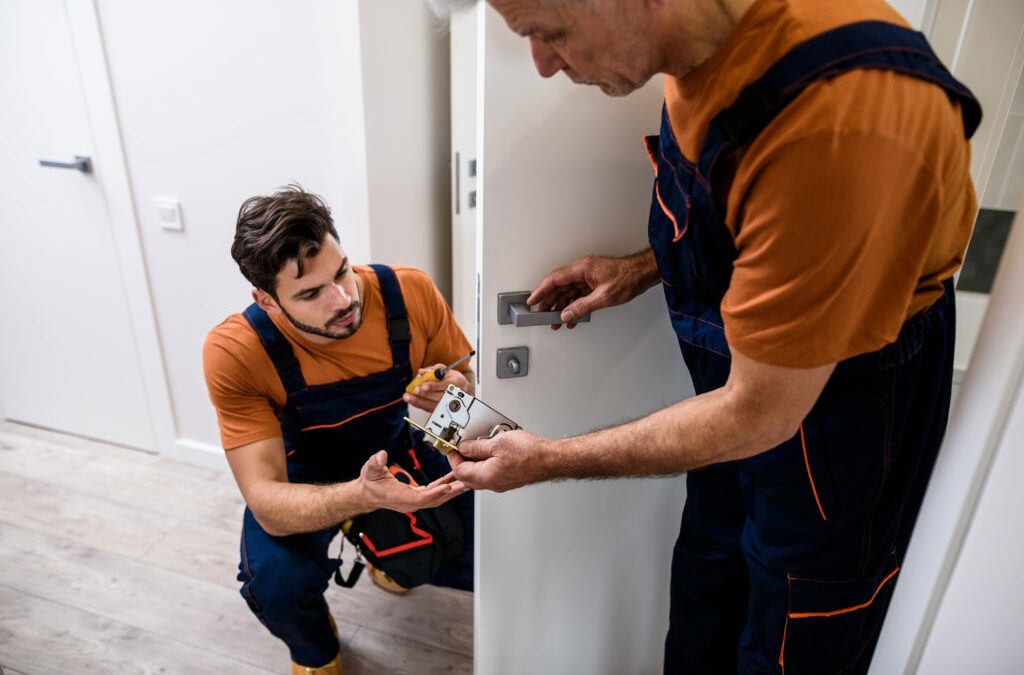Understanding the Difference: Rekeying vs. Replacing Locks
When safeguarding your home or business, it’s crucial to comprehend the difference between rekeying and replacing locks. While both options have their merits, selecting the one that aligns with your specific needs and circumstances is essential. Rekeying a lock involves altering the internal mechanism to operate with a new set of keys while maintaining the existing hardware. It is a less labor-intensive and cost-effective process compared to lock replacement, ensuring enhanced security.
Conversely, lock replacement entails removing the current lock and installing a brand-new one. This is recommended if the lock is damaged, outdated, or compromised. New locks offer improved resistance against unauthorized entry attempts, despite being a more expensive and time-consuming option. Understanding the disparity empowers you to make an informed decision for the security of your property. You can learn how to understand the difference between rekeying vs. replacing locks in this blog.
Rekeying Locks: When Is It Necessary?
The decision to rekey locks arises when locks show signs of wear or aging. Whether it’s a new residence or a commercial space, controlling access is crucial. Rekeying the locks upon acquiring the property ensures sole possession of the keys, eliminating concerns about prior access. The choice to rekey locks depends on the specifics of your situation, considering factors like cost, time, and desired security levels. Seeking a professional locksmith’s expertise aids in evaluating lock conditions and determining if rekeying is the optimal solution for securing your property.
The Benefits Of Rekeying Your Locks
Rekeying your locks presents several benefits without replacing them entirely. It’s cost-effective, especially for multiple locks, making it budget-friendly. Additionally, rekeying provides the convenience of using a single key for all locks, eliminating the need for multiple keys and potential loss concerns. Considering the factors that determine when rekeying is suitable, such as cost and time, ensures an informed decision for enhancing your home security without substantial expenses.
Replacing Locks: When Is It Necessary?
Lock replacement may be necessary in certain situations to ensure the security of your property. One such situation is when your locks are old or worn out. Over time, locks can become less effective in keeping your home or business safe, and it may be worth considering replacing them to ensure optimal security.
Another instance where lock replacement is necessary is when you move into a new place. Whether it’s a new home or an office space, it’s important to have control over who has access to your property. Replacing the locks when you move in can give you peace of mind that you are the only one with keys to your space and that previous tenants or employees cannot access it.
The Benefits Of Replacing Your Locks
Lock replacement offers many benefits, one of which is eliminating potential security risks. By ensuring no previous keys can open the new lock, you can maintain your peace of mind and sense of security. Another advantage of lock replacement lies in the opportunity to upgrade your security. Technological advancements offer features like keyless entry systems and smart locks controlled by smartphone apps. Opting for lock replacement allows you to embrace these modern advancements, optimizing your property’s security with convenience and an additional layer of protection.

Source: iStock
Rekeying vs. Replacing Locks: Which Is For You?
When it comes to securing your home or office, rekeying vs. replacing locks is an important decision. There are several factors to consider that can impact your choice. Ultimately, the decision to replace or rekey your locks should be based on specific circumstances and the needs of your situation. If you ever need to simplify this process a bit more, consult the professional locksmiths here at 24 Hour Locksmith Service. We’ll make sure you have just the service you need so your home can remain safe.


